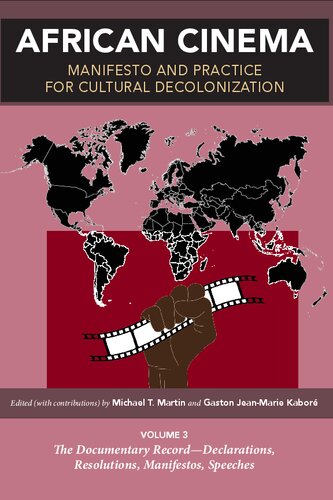

Most ebook files are in PDF format, so you can easily read them using various software such as Foxit Reader or directly on the Google Chrome browser.
Some ebook files are released by publishers in other formats such as .awz, .mobi, .epub, .fb2, etc. You may need to install specific software to read these formats on mobile/PC, such as Calibre.
Please read the tutorial at this link: https://ebookbell.com/faq
We offer FREE conversion to the popular formats you request; however, this may take some time. Therefore, right after payment, please email us, and we will try to provide the service as quickly as possible.
For some exceptional file formats or broken links (if any), please refrain from opening any disputes. Instead, email us first, and we will try to assist within a maximum of 6 hours.
EbookBell Team

4.3
58 reviewsChallenging established views and assumptions about traditions and practices of filmmaking in the African diaspora, this three-volume set offers readers a researched critique on black film.
Volume Three of this landmark series on African cinema spans the past century and is devoted to the documentation of decoloniality in cultural policy in both Africa and the Black diaspora worldwide. A compendium of formal resolutions, declarations, manifestos, and programmatic statements, it chronologically maps the long history and trajectories of cultural policy in Africa and the Black Atlantic. Beginning with the 1920 declaration of the Rights of the Negro Peoples of the World, which anticipates cinema as we know it today, and the formal oppositional assertions―aspirational and practical. The first part of this work references formal statements that pertain directly to cultural policy and cinematic formations in Africa, while the next part addresses the Black diaspora. Each entry is chronologically ordered to account for when the statement was created, followed by where and in what context it was enunciated.